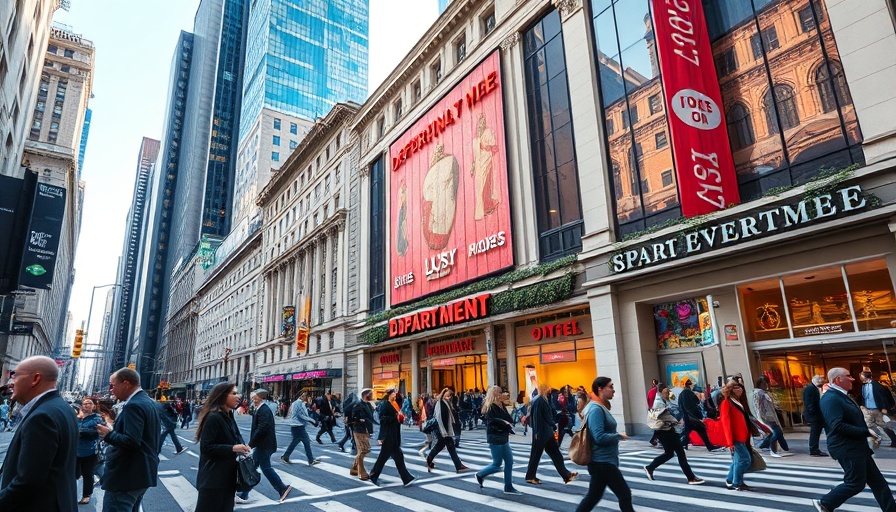
Why Tariffs are Turning Up the Heat on Junk Bonds
In the current economic landscape, US junk bonds are taking a hit due to the rise in tariffs and growing recession fears. Investors are feeling the strain as rising production costs and uncertain economic conditions lead to increased sell-offs. Junk bonds, often appealing to investors looking for high yields, are particularly sensitive to changes in the market, and the recent drops signify a broader concern regarding the state of the economy.
The Role of Economic Forecasts in Market Sentiment
Economic forecasts are crucial for understanding the potential trajectory of the financial landscape. As companies brace for tariffs impacting their profit margins, analysts predict that defaults may rise among firms with already weakened financial profiles. This raises questions about overall market sustainability, particularly for those betting on higher returns in risky assets like junk bonds. With the specter of recession looming, investor sentiment could change rapidly, leading to further volatility in these high-yield investments.
Connecting Tariffs to Market Trends
As tariffs increase production costs, companies often pass these costs onto consumers or reduce their workforce, affecting employment trends. This ripple effect reaches small businesses and startups in the Bay Area, where venture capital funding plays a vital role. Local entrepreneurs and tech startups must navigate this changing economic landscape, impacting everything from e-commerce to corporate partnerships.
A Looming Threat: Supply Chain Disruptions
Beyond tariffs, supply chain disruptions remain a significant concern for junk bond investors. Recent events have highlighted how shockwaves in the global supply chain can affect production timelines and operational efficiency. Companies heavily reliant on imported goods are particularly vulnerable, as delays in shipments can spell disaster for their financial health and, consequently, their bond ratings.
Potential Counterarguments: Opportunities Amid Challenges
Despite the current negative climate for junk bonds, some experts see potential opportunities for savvy investors. As churn in the financial market paves the way for more mergers and acquisitions, some firms may emerge stronger by consolidating resources and diversifying their portfolios. In this way, today's troubles could lead to innovative business growth strategies, prompting a shift towards sustainability and resilience in operations.
A Call for Corporate Responsibility
As the business climate grows more challenging, the importance of corporate social responsibility surges. Companies must adopt sustainable practices that not only align with investor expectations but also contribute to the broader economic landscape. Companies that embrace transparency, ethical practices, and robust governance often find their corporate culture positively influencing investor trust—a vital currency in turbulent times.
Forging Ahead: Practical Strategies for Investors
For investors navigating this tumultuous landscape, a diversified portfolio is often the best defense. Evaluating the fundamentals of each investment, with particular scrutiny of the impact of tariffs and economic forecasts, can guide more informed decisions. Furthermore, staying updated on local business developments, particularly in thriving regions like the Bay Area, allows for strategic positioning that mitigates risks and enhances growth potential.
Conclusion
As tariffs spark a sell-off in junk bonds, investors must remain vigilant and adaptable. Understanding the implications of economic forecasts, supply chain disruptions, and corporate responsibility can help navigate the uncertain terrain ahead. By embracing these insights, investors can develop more robust strategies that not only endure short-term fluctuations but thrive amidst the volatility.
 Add Row
Add Row  Add
Add 



Write A Comment